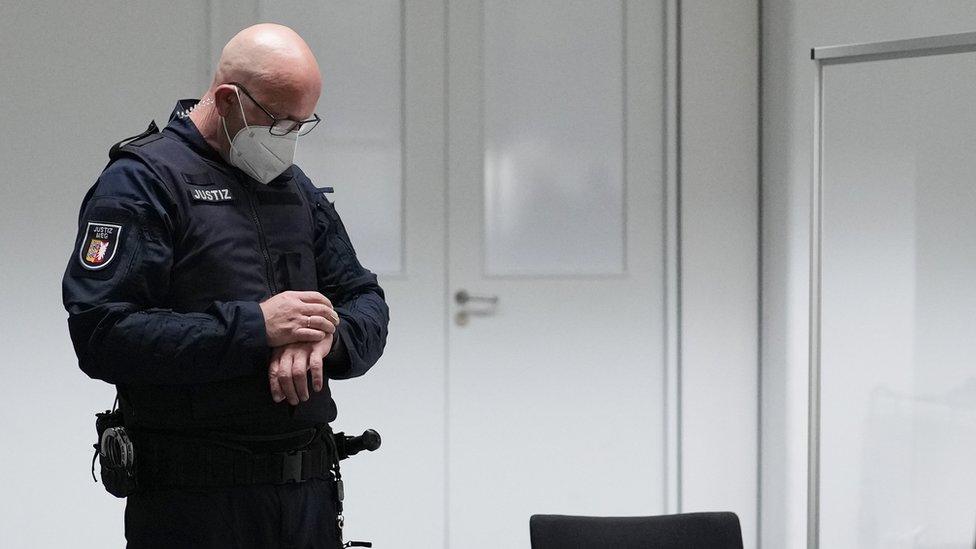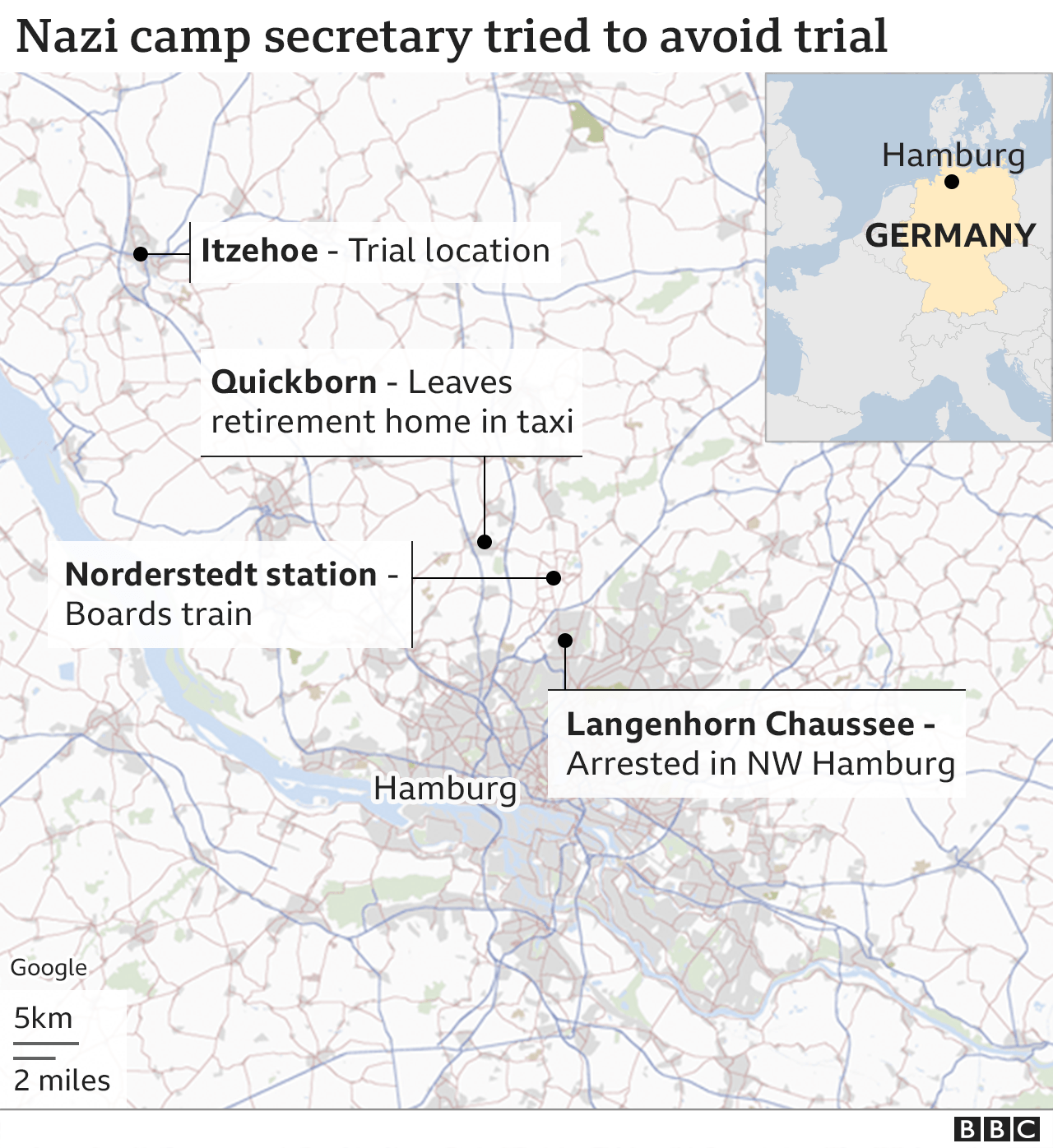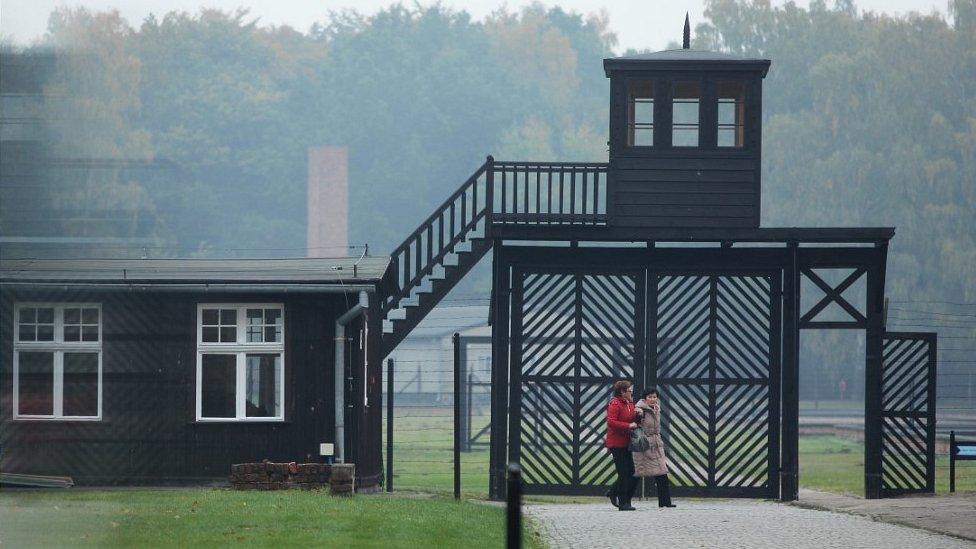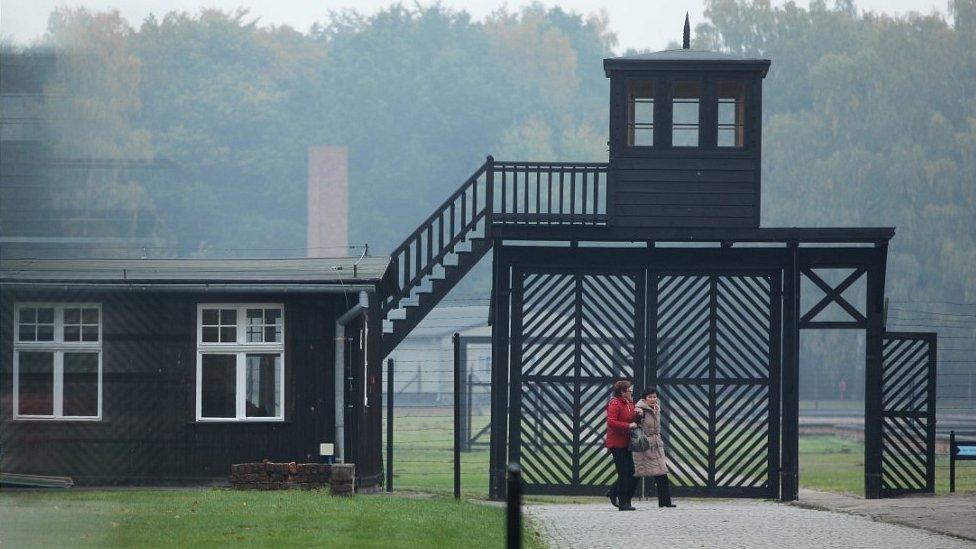Nazi Stutthof camp secretary flees as German trial starts
- Published

As the court waited for the trial to start, the judge said the defendant was now a fugitive
A former secretary at a Nazi concentration camp has been captured after trying to flee before her trial in northern Germany.
Irmgard Furchner, 96, was due to stand trial for complicity in 11,000 murders, but she failed to turn up and the judge issued a warrant for her arrest.
The defendant was detained by police hours after disappearing from a nursing home in the town of Quickborn.
She fled to Hamburg where she was picked up on a local street.
After her capture on Thursday, Ms Furchner was placed in provisional detention ahead of the opening of her trial.
She had been due to appear at a special court in Itzehoe, an hour's drive north of Hamburg.
Instead she left her retirement home between 06:00 and 07:20 local time (05:00 and 06:20 BST), apparently heading for an underground station. "She took a taxi," said court spokeswoman Frederike Milhoffer.
The court spokeswoman said later that the defendant would now be brought before the court, set up in the hall of a logistics company in Itzehoe because the town courtroom is not big enough to handle the media interest.


Judge Dominik Gross had earlier postponed the case until 19 October. Because of the woman's age, the court is expected to sit for no more than two hours a day. A doctor was due to examine her to decide whether she should remain in custody.
A group representing Nazi survivors and relatives of the dead expressed outrage that she had been able to escape. "It shows incredible contempt for the rule of law and survivors," said the International Auschwitz Committee.

Not all of the Stutthof camp remains and the site is now a memorial
The case is seen as unprecedented as Irmgard Furchner was a civilian worker at Stutthof.
She had worked as a typist in the office of Stutthof camp commandant Paul-Werner Hoppe, near the modern-day Polish city of Gdansk, which was invaded by the Nazis at the start of the war and known as Danzig.
For two years before the end of the war in 1945, she was said to have known key details of what went on at the concentration camp.
During Hoppe's 1954 trial she revealed how he had dictated messages to her but claimed she knew nothing of the Nazi murders at Stutthof.
Some 100,000 people were held at Stutthof, which was notorious for atrocious conditions and 65,000 are estimated to have died.
Stutthof had gas chambers, and people were killed at the camp by gassing, shooting and lethal injection as well as death and starvation. More lost their lives on death marches from the camp as World War Two neared its end.
Those killed at Stutthof include many Jews as well as non-Jewish Poles and captured Soviet soldiers.
Thursday's case marks one of the last ever Nazi trials, largely because few defendants are still alive. The trial is taking place in a juvenile court as the defendant was under the adult age at the time.
In March, a former Stutthof camp guard was declared unfit to stand trial, while last year another camp guard, Bruno Dey, was found guilty of complicity in the murder of more than 5,000 prisoners. He was given a suspended jail term.
Holocaust survivors: The families who weren’t meant to live
Related topics
- Published5 February 2021

- Published10 March 2021
